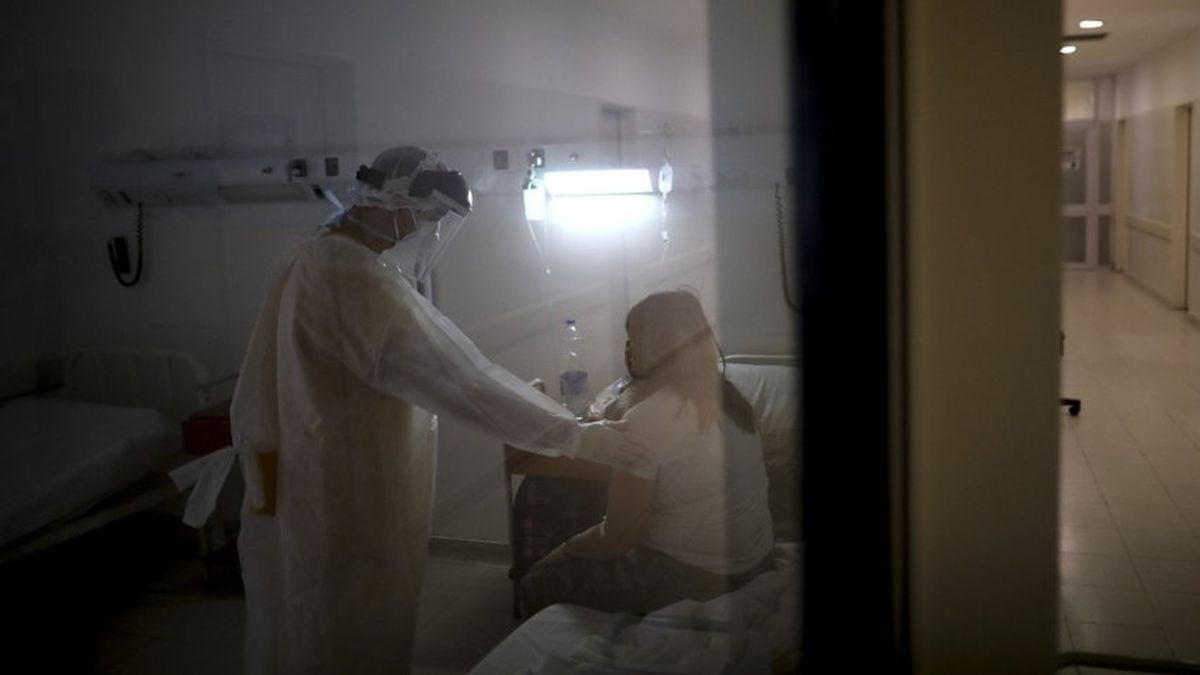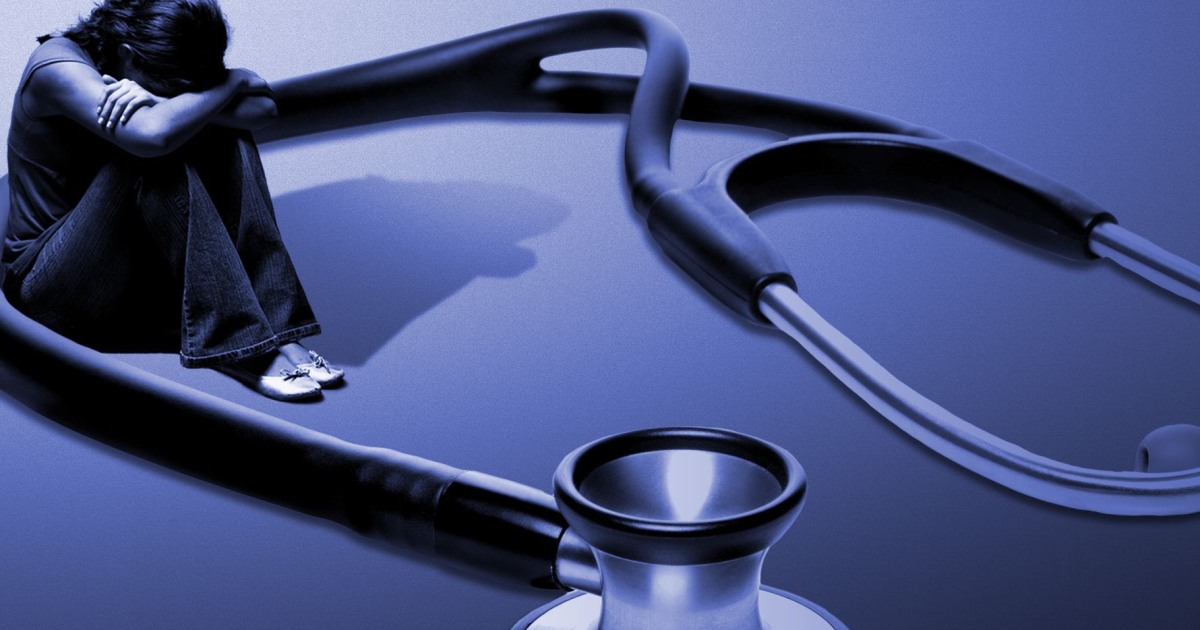After judicial processes that lasted more than a decade, the case of Manuela - a Salvadoran woman who suffered an obstetric emergency and was sentenced to 30 years in prison - has reached a conclusion: on Tuesday the Inter-American Court of Human Rights (IACHR) It condemned El Salvador for its arbitrary detention that led to the violation of its human rights, protections and judicial guarantees not to be discriminated against and gender-based violence, among other irregularities.
Manuela, a poor woman who could not read or write, did not have access to adequate medical treatment while in detention, so she died of lymphatic cancer in 2010 and left two orphaned children.
Supreme Court can rule on abortion law in Texas
Nov. 22, 202100: 30
"The decision recognizes that in El Salvador there is a context of systematic criminalization against women, and that especially affects the poorest women who suffer obstetric emergencies.
It is a terrible context of inequality,"
explains Catalina Martínez Coral, regional director of the Center for Reproductive Rights, an institution that presented the case to the court together with the Feminist Collective for Local Development and the Citizen Group for the Decriminalization of Abortion.
[The cases of Manuela and Sara in El Salvador are an example of how the prohibition of abortion threatens the lives of the poorest]
El Salvador has a total ban on abortion and imposes harsh criminal penalties on both women and doctors.
That has led to the incarceration of countless women who have suffered pregnancy-related complications and miscarriages.
In the event that a court determines your guilt, the penalties range from two to eight years.
However, in many cases during trials the crime is changed to aggravated homicide and
women can be sentenced to 30, 40 or even 50 years in prison.
“What they did with my mother was not good, they did not investigate that she was ill and could leave her children orphans (...) I tell the president not to do these injustices.
I am very grateful to the court because it has cleared my mother's name, ”said Jesús, Manuela's son, at a press conference held today in San Salvador.
Manuela's banners in San Salvador this November 28 during a protest against violence and in favor of women's rights.Emerson Flores / APHOTOGRAFIA / Getty Images
Between 2014 and 2020, the Citizen Group for the Decriminalization of Abortion registered 190 women prosecuted.
Of that number,
46 were convicted of aggravated homicide and about 30 for abortion
.
No more complaints from health personnel
An important aspect of the ruling is that it confirms that Manuela suffered an obstetric emergency, caused by pre-eclampsia, which the Salvadoran State questioned throughout the different judicial processes of the case.
"The court says that those who suffer obstetric emergencies cannot be automatically convicted and recognized that Manuela and many other women have been falsely accused of provoking an abortion, wrongly convicting them of aggravated homicide," says Ximena Casas Isaza, a researcher at Human Rights Watch.
The Legislative Assembly of El Salvador closes the door to the legalization of abortion
Oct. 20, 202100: 33
The ruling ratifies
the obligation of States to guarantee medical professional secrecy for women
seeking reproductive health services, including abortion, which is very important because it has been determined that the majority of abortion complaints occur in the health care system. Health.
"From now on,
no Salvadoran woman should be reported by doctors
because the court says that medical professional secrecy and health care should always prevail."
Casas, and other researchers, assure that the ruling will be crucial in a region like Latin America where many women face criminal charges after suffering obstetric emergencies.
For example, after analyzing 148 cases in Ecuador, Human Rights Watch concluded that 73% of the processes for alleged abortion began after the patients were reported by the health professional, in violation of professional secrecy.
Abortion Advocates Celebrate Temporary Lockdown of Texas Almost Banning Law
Oct. 7, 202101: 48
In Colombia, an investigation by the Mesa por la Vida y la Salud de las Mujeres revealed that, between 1998 and 2018, the prosecution processed 5,580 complaints of abortion and
in 75% of the cases doctors and other operators in the system health were the complainants
of women who came to the hospital feeling sick from having an abortion.
What about the women who are imprisoned in El Salvador?
The experts assure that the jurisprudence of the ruling in the case of Manuela can be used in the judicial processes of dozens of women who are detained, both in El Salvador and in other Latin American countries.
"We hope that this case can be used in the internal litigation for review of sentences to strengthen the arguments and
achieve a speedy release of many women who are incarcerated,"
says Martínez Coral.
The ruling coincides with various investigations that indicate that many lawsuits and convictions are based on gender bias and incur irregularities such as the violation of the presumption of innocence and the right to effective defense.
Will the decriminalization of abortion in Mexico benefit those who were already serving a sentence?
Sept.
12, 202101: 55
"We hope that the justice system in El Salvador can echo these resolutions and that this allows the early release of many women. That is our struggle and
the State must abide by the provisions of the court,
" explains Morena Herrera, representative of the Feminist Collective for Local Development.
What the Salvadoran State should do
The court ordered El Salvador to implement structural measures to prohibit the criminalization of women for obstetric emergencies.
Among other things, comprehensive education policies should be developed, the legislation on doctor-patient confidentiality should be amended to avoid complaints, and the legislation that establishes the automatic detention of reported women should be eliminated.
"The government has the opportunity to make a repair because it has great legislative backing. If they really assume this responsibility, all these measures can be put into practice," explains Herrera.
"They stole my dreams."
The harsh testimony of the Salvadoran woman who was imprisoned for a miscarriage
June 9, 202101: 23
Last October, the Legislative Assembly of El Salvador refused to reform the Penal Code to exempt those who consent to or perform an abortion from criminal responsibility, which closed the doors to allow it even when the woman's life is at risk.
For activists like Teodora del Carmen Vásquez, a Salvadoran woman who suffered a stillbirth in the last month of her pregnancy and was also sentenced to 30 years in prison, the ruling in Manuela's case is a ray of hope.
"We are happy but we
must continue fighting for the Salvadoran government to free women deprived of liberty
and for the legislation to be changed," Vásquez told Noticias Telemundo, who is in Switzerland where he spoke of the case of Manuela in the Parliament of That country.
Unlike Manuela, Vásquez managed to be released in 2018 after spending almost 11 years in prison and now dedicates her life to the fight for the vindication of women's rights and their social reintegration after going through prisons.
"The court gave the State between one and two years to apply all the changes, and we are going to press for that to happen. This cannot continue to happen," says Vásquez.


/cloudfront-eu-central-1.images.arcpublishing.com/prisa/RHYRDMQQ7BG5JOUSKAXBLKE6YE.jpg)
/cloudfront-eu-central-1.images.arcpublishing.com/prisa/CAHSVQLJ3BG67CVS2AKJQBHDCM.JPG)





